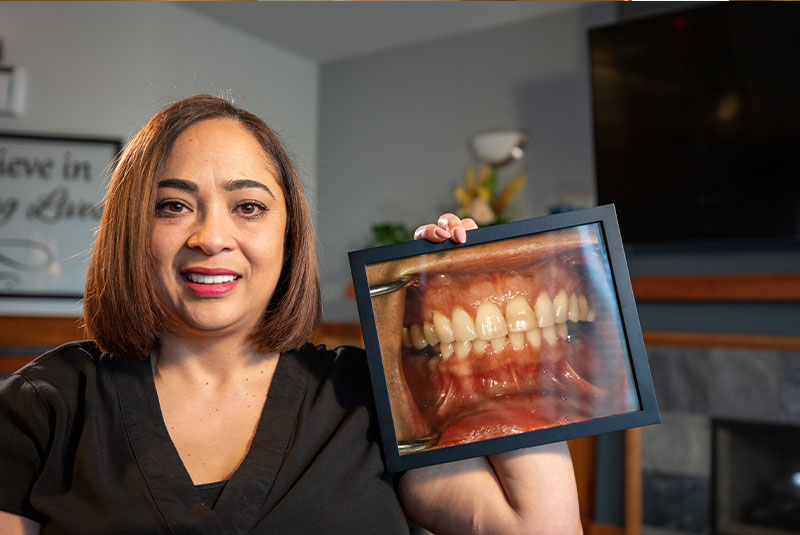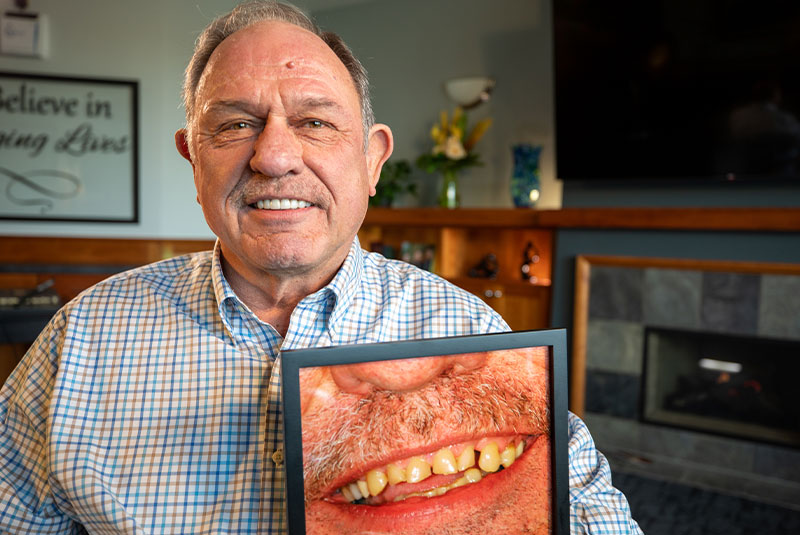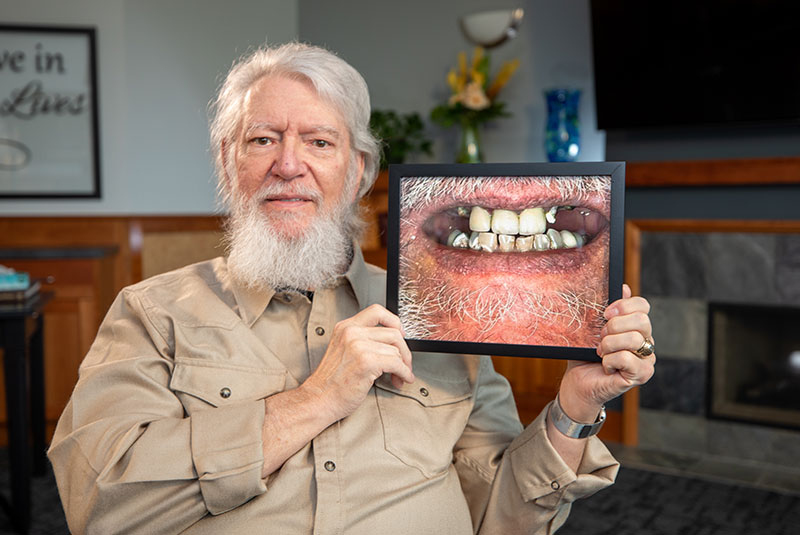Typically, when we talk about the gums, it is to discuss the consequences of gum disease. There’s another problem that may affect this delicate tissue, however, and it is also worth talking about.
What You should know about Gum Recession
For hundreds of years, not much attention was given to gum recession. In fact, this condition was perceived a natural part of aging. An older individual was almost expected to have longer teeth. The phrase “long in the tooth” was a common way of describing this. The truth is, our teeth do not become longer, necessarily; but they may appears so.
Like gum disease, gum recession can cause adverse effects in the mouth. Many of them are similar to the chronic infection gingivitis.
How gum recession affects oral health:
- Receding gums leave teeth roots in a compromised position. Like other exposed areas of enamel, oral bacteria and acidity can cause damage to roots. In fact, because the roots are supposed to be covered, they lack the protective overlay of enamel found on other areas of teeth. This means that decay can occur even more quickly on roots than on chewing surfaces, or in between them. If a cavity forms on the root of the tooth, standard filling may not be sufficient for repair; root canal therapy may become necessary.
- Beneath roots are several different vessels and nerves. Gum recession robs these structures of the protective overlay they need. This can result in persistent sensitivity.
- If gums are receding, it is likely that this connective tissue is weak. Weakness poses a risk for plaque accumulation and the development of pockets in which bacteria can collect. If you do not have gum disease, gum recession may be a trigger for this condition to develop.
- Also, the buildup of plaque and these pockets can be a factor in chronic bad breath.
What to do about Receding Gums
Brush Your Teeth
Brush morning and night for two full minutes; and be gentle about it! Brushing is an interesting aspect when it comes to gum recession. If you do not brush sufficiently, plaque and bacteria will wear down gingival tissue. Conversely, if you use excessive force to try to get your teeth clean, you could directly wear down tissue. Toothbrush abrasions do just as much damage to the gums as plaque.
Avoid Tobacco
While smoking increases the risk of gum disease and oral cancer, smokeless tobacco is also incredibly harmful to the tissue that surrounds teeth. Gums that are consistently in contact with tobacco and other chemicals do not get adequate oxygen, which means they break down and recede.
We love helping our patients manage healthy, pain-free smiles.
Schedule a consultation
Schedule your visit and our Sherwood office today.













